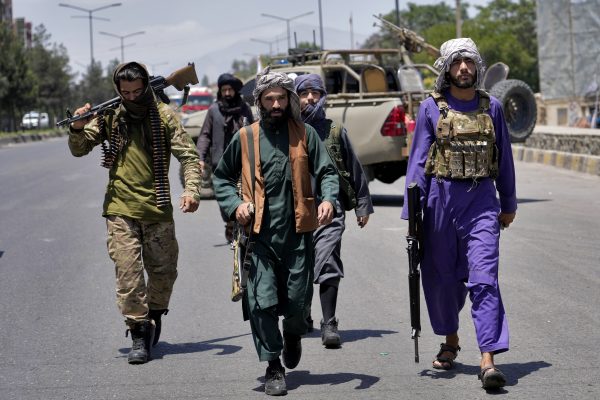President Ghani’s inclination toward power and his glaring (could be deliberate) blunders of appointing the wrong people to crucial portfolios brought Afghanistan’s downfall. On the Taliban’s one-year rule anniversary, one can witness the same – incompetence brimming out of a collapsed system.
No doubt that former President Ashraf Ghani was a lecturer and taught in various international universities, a good innovator and manager in the field of economic reforms, the Minister of Finance in Afghanistan, the chancellor of Kabul University, and the president during his first Presidential tenure – had a relatively sound background. I acknowledge his achievements in the above-mentioned areas.
Of course, after winning the controversial presidential election for the second time, his strategy was absolutely against peace and national interests. It was not acceptable to the nation. His extreme love for power rather than peace, promoting widespread corruption, his incompetency in the field of national sensitivities, and finally, his embarrassing escape from KABUL, is considered to be a humiliating act domestically and internationally that will be impossible to compensate for.
We have been facing a crisis of home-grown national leadership for the last four decades. Our politicians instead of serving the country and providing facilities to the nation, think of power as a source of personal privileges. They have continuously pursued the politics of monopolization of power and negating stakeholders.
Being the outcome of the countless sacrifices of the people of Afghanistan and the very high financial support of the international community, the collapse of the republican system despite some reservations was a disaster. It gave a new twist to the endless tragedies of the Afghan people.
It was clear that the first stages of collapsing the previous regime began parallel to the irrational beginning of Doha negotiations between the US and Taliban, excluding the Afghanistan government from the process, kept in dark, with hope and despair, and ended on the 15th August 2021.
In addition, the blame for the downfall should largely be placed on the widespread horizontal and vertical corruption within the system.
Another reason for the institutions’ downfall was the lack of coordination. These unfortunate circumstances were due to the differences among the ruling stakeholders. Those differences hindered the strengthening of the system and were considered to be the shortcomings that broke the trembling resistance of the system before the entry of the Taliban forces into Kabul.
Before the president fled, the provinces had fallen one after another. The vice-presidents, the security sector ministers, and the commanders of the battle lines had already taken the way to escape. As wretched as it sounds, President Ghani, as the supreme commander, could not anticipate such horrible situations and had not tried to prevent the fall by taking quick, bold, and concrete steps toward peace.
Let us now shed some light on the post-collapse situation and see what we lost and gained. It is essential to clarify that neither the previous system could really claim to represent the people nor the current system.
Nowadays, there are no lawbreakers and warlords who used to give warnings to the president and threaten the center chanting the downfall of the government. No one within the geography of Afghanistan can even think of rejecting an official appointed by the Islamic Emirate. And, people are somewhat happy about these changes.
There are numerous shortcomings in establishing an ideal Islamic rule in Afghanistan. However, the Islamic State certainly does not mean any of the following: ruling the country by gun, assigning key government posts to friends and unprofessional individuals in the cabinet, showing weapons to the world, driving armored vehicles, closing girls’ schools, and, if suited, terminating the state pillars, such as independent judiciary and legislature.
If I summarize the negative aspects in words, I would say that there are no professional people to manage the system, and no domestic and foreign policies and institutions. The most advanced version of monopoly is nepotism, merit is ignored while assigning key posts, institutions are paralyzed, the people are lining up for international charities, girls’ secondary and high schools are closed, and there is still no common language of understanding with the nation and the international community.
The Taliban are blaming the international community for their non-recognition, deliberately overlooking the policies at home that make their people go against them.
We claim to be an independent state, but last week in Sherpur, Kabul, we witnessed all our false pride and our helplessness. We must admit that this was not the first attack and unfortunately, does not seem to be the last one. From top to bottom, we cannot guarantee our immunity from the attack of foreigners. Our airspace is not under our control. We don’t see an alternative, but we are struggling hard for reforms and changes. We would continue to beg our authorities for making big decisions, including the justified distribution of power, to get legitimacy at the national and international levels.
The Islamic Emirate leaders should realize that the policy of deletion brings destruction. Afghans have seen in the last two decades that oppressive and authoritarian regimes do not last.
IF: we strengthen the spirit of partnership instead of monopolizing power, practice critical thinking instead of narrow-mindedness, and instead of Pashtun Tajik, Hazara, and Uzbek, we embrace ourselves wholly as Afghans; rather than taking away the freedom of other people, we think of eliminating our faults, only then the country will build itself, the people will be accommodated and live in peace.




